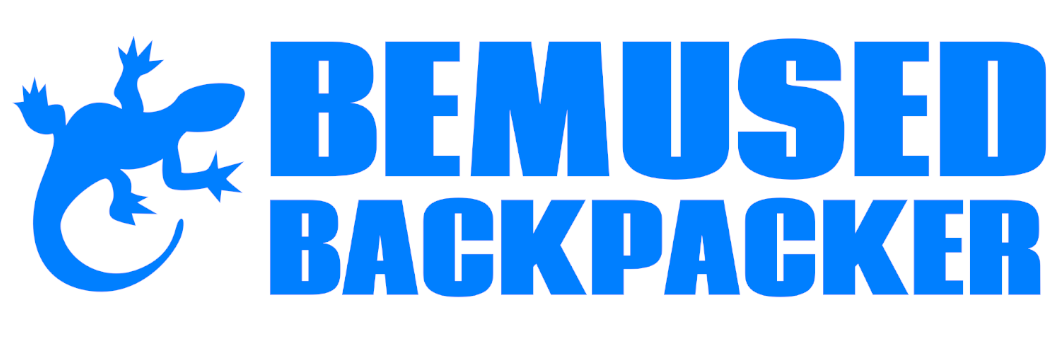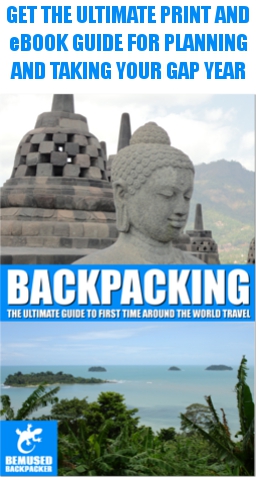
Travelling the world exposes you to a lot of things, not all of them good. One thing that many travellers don’t think about is their increased exposure to germs and viruses as they travel, or the simple steps they can take to keep themselves clean, germ free and healthy. Find out how to stay germ free and avoid getting sick when you travel with these easy travel hygiene and infection prevention control tips.
The recent COVID19 pandemic has laid bare the fact that the majority of the population are woefully unprepared when it comes to basic hygiene when they travel. This is not a surprise, or a new problem. Travellers have been exposed to countless bugs, virus’ and diseases since dawn of civilisation, and the majority of people since then barely bother to wash their hands much less worry about germs. To an extent this is okay, the human immune system is a wonderful thing and the level of paranoia created by the Covid19 pandemic is extremely unwarranted, but it is important to have a basic awareness and maintain basic common sense hygiene practices.
Poor hygiene practices can spread a lot more than various coronavirus germs, travellers diarrhoea, cholera, typhoid and many more illnesses can be spread by backpackers and travellers simply not practicing good hygiene. You can hear more about some of the more common travel illnesses and ailments here:
Apart from the fact that there are many parts of the world where cleanliness and hygiene aren’t exactly up to best practice standards at the best of times, other travellers own personal hygiene standards aren’t always great either. That means on any given day you are exposed to countless germs, bugs and virus’. What? Did you think this was a new thing that began with Covid19? Just think for a moment how many surfaces you touch when travelling, that screen on the plane, the tray you eat your gassy, barely edible plane food from, the latch for the overhead bin, door handles, those sticky buttons on the train or MRT system, the hostel bed rail or the lift buttons in your hotel. Think how many people have touched them before you, now remember a hell of a lot of people don’t wash their hands after going to the toilet and think about the fact that in many cases none of those surfaces probably haven’t been cleaned or sterilised!
Now what do you do after touching all of these things? Do you touch your face? Maybe scratch your nose? Put your hand to your mouth as you yawn? Get a quick sandwich on the go?
That’s a hell of a disgusting thought, right? Well remember as well that many diseases such as cholera, shigella (bacillary dysentery), diarrhoea and vomiting, cryptosporidium and many more can be passed either directly or indirectly via the faecal oral route. And yes, that is exactly what it sounds like. And remember that viruses in general, including the new strain of Coronavirus, COVID 19, can live on average for up to 24 hours on many hard, nonporous flat surfaces like plastic.
So every time you touch a surface, shake a hand, hug someone, or even eat contaminated food or water, you are putting yourself at risk of becoming ill.
Not a nice thought, is it?
Please remember this is not meant to make you feel paranoid, you can still sit down at the most basic of street food stalls, you can still shake hands or hug someone and you don’t have to avoid people forever, just be a little more aware of your personal hygiene and potential infection routes.
This isn’t meant to creep you out or make you want to take a bath in disinfectant. I just want to remind all backpackers and travellers out there that so much of this can be avoided with basic common sense self hygiene procedures. And I do genuinely mean that. The entire reason I never fell prey to the fearmongering over covid19 or the hysteria over masks is because I am trained in IPC and I follow simple, everyday hygiene procedures in my daily life which reduces any potential risk to reasonable levels.
And it is important to remember that no envioronment you travel to will ever be completely sterile, you will always be exposed to bugs and virus’ to some extent and that is just a natural part of life. Reasonable precaution just means you reduce the risk of becoming ill without becoming paranoid to the extent you board that plane in a hazmat suit!
Seriously, all it takes is basic common sense but thorough hygiene practices, and it really is not that hard. You don’t need to mask up everywhere, you don’t need to stay 100 feet apart from everyone at all times and you don’t need to soak your backpack in disinfectant every night! So given that a lot of the covid19 protection nonsense is just that, how do you protect yourself from all these germs, viruses and bacteria and avoid getting sick when you travel?
Personal Hygiene.
The best way to reduce the risk of becoming infected with any virus, bacteria or germs is to be clean and hygienic yourself. I know this sounds like common sense but most people just don’t have the best standards. How many people lick their fingers when reading a book, touch dirty surfaces all day or don’t wash their hands after using the toilet or before handling food? I have spent some time on infectious disease units in my previous career and even in that environment we had to remind visitors about the absolute basics of washing their hands before they could even enter!
Seriously, if everyone was better at personal hygiene every single day COVID 19 would not have been declared a pandemic and we wouldn’t have a ‘flu season’ of Influenza every year.
So how do you maintain a strong personal hygiene regime?
Wash Your Hands.
It really can be this simple. Just wash your hands. Frequently, often, as much as you can and definitely after you have been to the loo or before you handle or eat food. Washing your hands is so important we even had a practical exam on it during my nursing degree! Seriously! If it is drilled into healthcare staff as the number one basic essential, that should tell you something!
Warm water and soap is best. There is no simpler way to put that. Use warm water and soap, wash your hands thoroughly for at least 20 seconds and make sure you scrub every surface, including fingernails, in between your fingers and the backs of your hands.
Alcohol Gel.
Let’s be honest about this though, when you are travelling it isn’t always practical to wash your hands frequently and you may not always have access to warm soap and water. Not every street food stall has a sink right next to it and there are no soap dispensers on that epic hike.
In these instances alcohol gel is a good stop gap. Alcohol gel does not clean dirty hands, nor is it a replacement for soap and water, but it is a simple stop gap measure that you can use in between washing your hands. For example after getting on the MRT and holding the rail, you can use alcohol gel straight after you get off and then you can wash your hands properly before you sit down to eat.
As a general rule of thumb if you have used your alcohol gel twice, it is time to wash your hands properly again.
Remember that to be effective any gel needs to be at least 60% alcohol at a bare minimum, and if you just use anti bacterial gel that isn’t always effective against viruses.
So just to be clear, because this is something I hear often, yes you do still need to wash your hands! Alcohol gel is a supplement to that, not a replacement!
Showering.
C’mon, I know backpackers have a reputation as stinky hippies but I really shouldn’t have to tell you this, right? Just get a wash you hobo!
Be Aware Of What You Touch.
Stop sniggering at the back I don’t mean that! I mean one of the easiest ways germs are spread is by someone touching something that has been contaminated and then touching something else. So if you are going about your day, opening doors, shaking hands and doing any normal task, like everyone does all around the world every single day, just keep that in the back of your mind and be careful about touching your face or handling food after you have been touching all those things.
This is genuinely one of the most common causes of basic travel illnesses like D&V. Travellers can even make themselves ill by handling food with dirty hands, consuming it and then mistakenly thinking they have food poisoning. It’s not the food, you just picked up a bug and didn’t wash your hands.
Now remember, this doesn’t mean you have to be paranoid. You can still shake someones hand, you can still go about your daily life and open those doors or grab the hand rail on the metro, you can’t get through life without doing these things no matter how many people may try to now, just keep it in the back of your mind and wash your hands regularly or as soon as is reasonable.
Be Socially Aware.
What I mean by this is just be aware of your health in general and the fact that most people have a tendency to be filthy animals. Assume, without being paranoid of course, that anyone else has not washed their hands at all, and anything they touch, including your hands if they shake them, can potentially spread germs. You can still shake hands, you can still touch things, just keep this in the back of your mind.
It is also important to remember that you don’t have to avoid everyone and dive out of the way if they come within a mile of you. Everyone has got social distancing drilled into their minds and have become overly paranoid about it.
The general rule of thumb is a good metre at least is good practice if and only if someone is coughing and spluttering all over the place, if they aren’t then the risk drops dramatically and assuming you aren’t in a huge crowd there is no need to worry if you pass by someone on the street or a waiter stands next to your table at a restaurant. Sitting next to someone on a plane is absolutely fine, assuming they aren’t turning their head to cough directly in your face (seriously, who would do that in any normal societal situation?) Just use your common sense and practice a little bit of judgement.
Avoid anyone who has obvious symptoms of illness such as coughing or sneezing, or at least stay a good metre away from them if they are spluttering everywhere, and if you are ill yourself try not to travel if you can help it, avoid spreading your germs as much as possible and stay and rest in a private room somewhere for a bit, that will help stop the spread of your germs as well as make you feel better sooner.
Basically speaking, unless someone is obviously ill, you don’t need to worry. If they are, then keep them at arms length but there is no need to call for them to be hauled off to quarantine.
Cleaning Your Environment.
This is often just as important as making sure you yourself are clean, but when you are travelling you don’t always have full control over your environment. It’s not like when you are at home and you can make sure every surface is clean and disinfected regularly. You may be in a really remote area that doesn’t have the best sanitation systems at the best of times, that hostel kitchen may be a breeding ground of bacteria and germs, and who knows what is on the back seat of that dirt cheap overnight bus.
This is why personal hygiene is so important, hand washing alone can deal with the majority of risk from dirty durfaces, but you can take steps to control at least some of your environment by simply keeping some disinfectant wet wipes in your pack and wiping things down. You obviously can’t do this everywhere and you shouldn’t try to, you’d honestly just look deranged, but there are some surfaces that you may gave prolonged contact with where it makes sense.
On The Plane.
Aeroplanes are hotbeds of germs, and they are not cleaned as often as passengers think they are!
Basically speaking aircraft are only cleaned and disinfected thoroughly every month on average, or during a C Check, which is an airlines version of an MOT check every one to two years depending on how much they fly. Aircraft are also usually given a full clean every night, when they are usually grounded for a good few hours at least. This is where apart from the basic cleaning the galleys, trays, lavatories and more are given a lot more attention.
Usually however they are only given the most basic of tidy ups in between flights. The quicker the turnaround the less they are cleaned, this is especially true on budget airlines where turnaround times are often really tight.
So every time you get on a plane odds are it has not had a thorough clean, and you don’t know what germs are on the equipment you will be touching or who has used them before you. I have literally seen people place dirty nappies on the tray table before now so just think about that before you tuck into that stale sandwich!
That is why when I board a plane I just spend a few minutes wiping down the screen, the armrests, the tray and the window compartment and button (if I am sat at the window). Then I use alcohol gel on my hands (because obviously getting up to wash them isn’t practical and odds are I’ve washed them not long before boarding anyway).
It takes a few minutes and I know my immediate environment is relatively clean.
By doing this, and assuming that no one else touches that envioronment but you, and assuming your neighbour doesn’t cough or sneeze all over the screen before you touch it, you have reduced any (already low) risk dramatically.
Eating Out.

Eating street food at street stalls and food courts is an essential part of the backpacking experience and is in general terms very safe, not to mention delicious! But there are just a few things you can do to avoid becoming ill through contaminated food and water.
Unfortunately there is very little you can do about other peoples hygiene, but you can use your common sense to see if the street stall you want to buy food from is relatively hygienic or not. If the vendor is smoking and scratching his backside before handling your food run a mile, if they are visibly washing their hands or using disposable gloves in between customers, join the queue! The size of the queues themselves are also a very good indicator of who is good or not, as is seeing whether the meat they use is fresh. Meat that has been left out and exposed to the air for a long period of time such as a buffet or simply pre cooked meat, can start to build up a lot of nasty organisms that can give your stomach some serious problems. This is especially true for pre cooked sea food.
If you are at a food court or fast food place, especially if it is busy, then be aware of the table you are sitting at too. In my experience fast food courts, especially in Asia, tend to be pretty on the ball at having staff wipe them down with warm soap and water regularly, but if not then giving your table a quick wipe down yourself isn’t a bad idea.
Again, prevention is always the best part of the cure here. Good hand hygiene is essential – just as it is at home – and if you can’t wash your hands in warm soap and water just before you eat then at least use an alcohol gel.
Do not use untreated water from a tap or any other source if you are travelling in a country that doesn’t generally treat its water, and stick to bottled water instead. Filter bottles are also a great alternative if you want to save money and the environment by cutting down on plastic bottle waste.
Personal Cutlery.
It may be a little bit of overkill but it certainly doesn’t do any harm to consider the cutlery you are using when you eat out too. Generally a quick clean with an antiseptic wipe won’t do any harm, or if you want or need to be really careful because of an individual health history, carrying your own spork or chopsticks that you can clean yourself is a good idea too.
Personal Electronics.
Be honest, when was the last time you wiped your phone clean? Think about it. How many of you clean your laptop keyboard regularly? I don’t even want to think about what’s on that! A quick wipedown with antiseptic wipes occasionally takes no time at all does it? But it does stop the build up and spreading of countless germs.
Remember, none of this is meant to make you paranoid about germs, but is just here as a reminder to make yourself more hygiene aware. There is no need to be obsessively cleaning every surface in a full hazmat suit or pushing people away with a 2 metre long stick if they get too close. Just keep good personal hygiene in the back of your mind as you travel and you will reduce your risk dramatically.
Did you enjoy this article? I would love to hear your thoughts in the comments section below or on my Facebook or Twitter pages and please feel free to share it with any or all of the social media buttons. If you want to get more great backpacking tips, advice and inspiration, please subscribe to updates via email in the box to your right.
Related Articles.
Common Backpacker Illnesses And Diseases.
Is Street Food Safe When Travelling?
Most Common Travel Illnesses And Ailments And How To Deal With Them.





Excellent reminder, it actually is quite horrible to think of people not washing their hands and not knowing what they are passing on!
I know what you mean Daniel!
Do you think things will get back to normal though? Travel wise I mean? I certainly don’t. I think this lockdown will be the norm for a long time yet and I think many borders just won’t open again after this, so a lot of changes like hygiene may be too little too late.
I absolutely do think they will Jodie. I think some things need changing and will hopefully improve (like hygiene and infection control), but yes we will all be travelling again and borders will open up again. The sooner the better to be honest.
Almost all of your tips here are straight up common sense but travelers and the travel industry will start taking things seriously post-COVID19.
I certainly hope so Dan, they definitely haven’t been beforehand and many are still falling short even now. Even if it takes legislation to force things like airlines (who need far heavier regulation anyway) to have a minimum disinfection standard between flights, I’d be happy with that.
I will definitely be washing my hands more and wiping airline trays and screens down more after all of this! Eww!
Great to hear Gemma!
So important. Hopefully more people pay attention to this now
I certainly hope so Chloe
So true, I’m actually shocked and disgusted thinking back at how many flights I’ve taken without giving this a second thought.
I know what you mean.
Why weren’t people doing this before?!?
Wish I knew!
Excellent and timely reminder
Thank you
And all it took was a global pandemic to get people to start doing this.
Exactly
This is seriously better advice than the government are giving out at the moment with that stupid mask rule!
Thank you so much Kathi, hope people find it useful.
No mention of masks?
Nope, and there is very good reason for that.